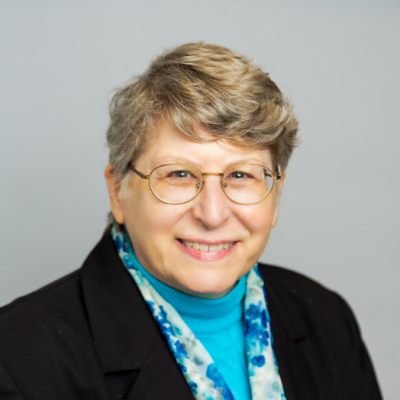
ISC service(s) or programs/projects: University mission continuity; information assurance: managing and mitigating IT risk for Penn including security & privacy impact assessment (SPIA) and vendor security technical assessments (VSTARs); chair of Penn IT Policy Committee
Length of time in ISC: Joined ISC in 2006 and Penn in 1989
Penn service outside ISC: Teaching yoga at Pottruck Gym, mentoring new young employee
Previous work experience: Office of the Provost at Penn (undergraduate education policy), Director of Academic Affairs for the undergraduate division of Wharton.
Tell us about a challenge at Penn that made you proud to be part of ISC.
I was part of the team that delivered the Business Impact Analysis for the Mission Continuity program in 2018, at the direction of the Institutional Risk Committee (IRC). This effort involved communicating with over 100 people from all the Schools and Centers to help them determine their critical priorities when delivering their portion of Penn’s mission. This information builds on and fortifies the existing continuity plans, ensuring that Penn can be resilient in the face of a wide range of adverse events — everything from fires to cyber attacks to pandemics. I brought my experience in project management with ISC, including the focus on concrete deliverables in a defined timeline, to this very timely project.
What’s an interesting technical or business problem you’ve faced with ISC?
There’s no central office at Penn for mission continuity — everybody who works on it has another job. Janet Plantan of the EVP’s office and I met with all the Schools and Centers individually to analyze how their work got done and make sure they had training and documentation to support their continuity planning work. We held annual tabletop exercises around various disruption scenarios. The proof of the pudding occurred in March of 2020, when the whole University had to shift to remote operations. Penn made the move more smoothly than many peers, and we heard from units all across campus that the continuity planning process had been really helpful because they already had plans in place for remote operations.
What do you like best about working with clients?
I love working with people from many different areas of Penn, with a variety of backgrounds, united by a common mission. Each approaches their portion a little differently than someone else. It’s a great strength. Work on the Mission Continuity Program is distributed throughout Penn, and I really enjoy interacting with people in the Schools and Centers to help them determine how best to keep their portion of the University resilient.
What lasting effects did the pandemic have on your role and your work?
I now work hybrid. Like many people, I now have more meetings in remote format than I used to have in person. It’s actually easier to gather large groups together and loop in colleagues from peer institutions with virtual meetings. That’s very helpful in my work. Some days, though, what I notice most is what remains the same despite the pandemic. The goals of the programs that I work on — the efforts to make the University as resilient as it can be — remain the same, even if we’re pursuing them in different formats.
What do you appreciate most about the time you spend on campus?
I appreciate the gym and being able to teach yoga there, no question. But I value the whole physical aspect of being on campus. That’s something I try to share with my mentee. Some days we just walk around campus and appreciate the architecture and public art, the landscaping, the extensive public spaces and the open stacks in the library. If I were doing the exact same work for a shoe company, it wouldn’t be the same. Not that I have anything against shoes! I wear them every day. But the connection to the mission of the institution is worth a lot to me.
What are you passionate about in your free time?
Yoga is at the top of the list, certainly. And I’m an avid reader — I read a lot. My husband and I are passionate “Jeopardy!” watchers. We shout at the television for that instead of football games.
What would you like people at Penn to know about you?
I first came to Penn in 1980 as a graduate student and never left. I got all my graduate degrees at Penn. If you count my graduate student days, I’ve been here over 40 years. And I met my husband at Penn. So Penn has not only given me a career, it also gave me my marriage.
And a lesson. My doctorate is in American Civilization, a field completely different from what I do now. Penn teaches you that you can benefit from studying something just because you’re interested in it. You develop critical thinking skills, and it enriches your life whether you use it directly in your work or not.